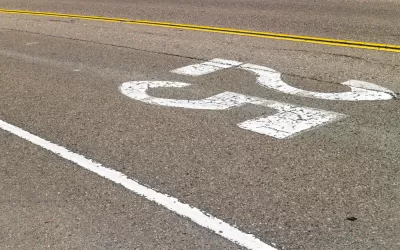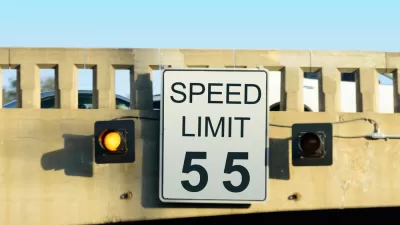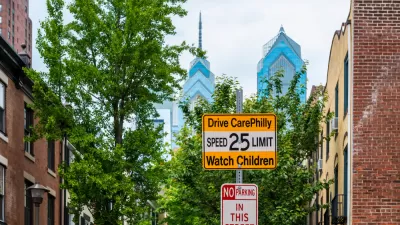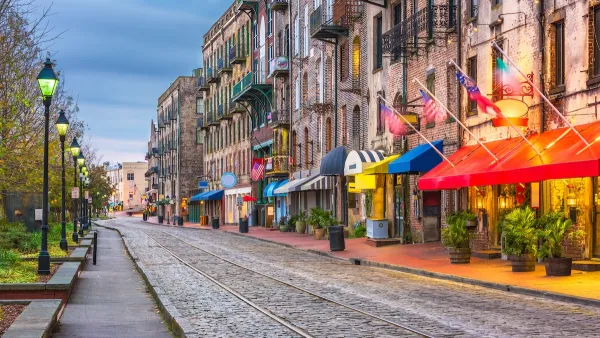Business Insider offers a platform for an argument favored by the National Motorists Association and a particularly vocal Michigan state police officer: that speed limits are too slow to be safe.

An article by Alex Mayyasi makes the case that the system by which the United States regulates the speed of vehicles is irrational and unsafe. That is, as the headline of the article states, "There's convincing evidence that speed limits are way too low."
Mayyasi cites Lieutenant Gary Megge of the Michigan State Police as a leading advocate in favor of higher speed limits. Lt. Megge's argument centers on the 85th percentile rule, which traffic engineers are supposed to use to determine speed limits, though speed limits are often set below that level. Thus, according to Lt. Megge, most drivers speed. In his own words, Lt. Megge describes why he thinks that's wrong:
“We all speed, yet months and months usually pass between us seeing a crash,” Lt. Megge tells us when we call to discuss speed limits. “That tells me that most of us are adequate, safe, reasonable drivers. Speeding and traffic safety have a small correlation.”
Going a step further, Lt. Megge believes that raising speed limits would make roads safer by putting an end to the tacit understanding that the speed limit is set too low. Mayyasi explains: "With higher speed limits, Megge says, police officers could focus their resources on what really matters: drunk drivers, people who don’t wear seat belts, drivers who run red lights, and, most importantly, the smaller number of drivers who actually speed at an unreasonable rate." Megge also says that the only way to lower speeds is through engineering choices: "It’s more expensive, but unlike changing the number on a sign, it’s effective," paraphrases Mayyasi.
FULL STORY: There's convincing evidence that speed limits are way too low

Planetizen Federal Action Tracker
A weekly monitor of how Trump’s orders and actions are impacting planners and planning in America.

Congressman Proposes Bill to Rename DC Metro “Trump Train”
The Make Autorail Great Again Act would withhold federal funding to the system until the Washington Metropolitan Area Transit Authority (WMATA), rebrands as the Washington Metropolitan Authority for Greater Access (WMAGA).

DARTSpace Platform Streamlines Dallas TOD Application Process
The Dallas transit agency hopes a shorter permitting timeline will boost transit-oriented development around rail stations.

Renters Now Outnumber Homeowners in Over 200 US Suburbs
High housing costs in city centers and the new-found flexibility offered by remote work are pushing more renters to suburban areas.

The Tiny, Adorable $7,000 Car Turning Japan Onto EVs
The single seat Mibot charges from a regular plug as quickly as an iPad, and is about half the price of an average EV.

Supreme Court Ruling in Pipeline Case Guts Federal Environmental Law
The decision limits the scope of a federal law that mandates extensive environmental impact reviews of energy, infrastructure, and transportation projects.
Urban Design for Planners 1: Software Tools
This six-course series explores essential urban design concepts using open source software and equips planners with the tools they need to participate fully in the urban design process.
Planning for Universal Design
Learn the tools for implementing Universal Design in planning regulations.
Municipality of Princeton
Roanoke Valley-Alleghany Regional Commission
City of Mt Shasta
City of Camden Redevelopment Agency
City of Astoria
Transportation Research & Education Center (TREC) at Portland State University
US High Speed Rail Association
City of Camden Redevelopment Agency
Municipality of Princeton (NJ)





























